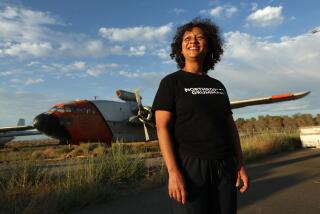An all-male college’s future
Deep Springs College, an unusual liberal arts school cum cattle ranch and alfalfa farm, offers manual labor, intense academic study and close-knit community living in an isolated valley in California’s high desert. The highly regarded two-year college has a student body of just 26, and for the 95 years of its existence, it has been all-male.
Now, following the path of many schools before it, the board of trustees, supported by the college’s president, wants to break with tradition and admit women. But to do that, the board must get permission from Inyo County Superior Court to reinterpret the founding documents that specify a school for “promising young men.” Two dissenting trustees recently filed papers asking the court to block the change in enrollment policy, arguing that it is a violation of the trust that established the school.
In a letter to the school community, the chairman of the board of trustees said that making the school coed is not just a philosophical change but also a practical one. As prestigious as the school is, its all-male status hinders fundraising and the recruiting of faculty and students, he wrote. The dissenting trustees dismiss that in their court filings, contending that the school is flourishing in every way.
So should it or shouldn’t it? This page has on a number of occasions called on all-male institutions that are public or receive significant public funding to be opened to women — the key battles, more than 15 years ago now, involved two military schools, the Citadel and Virginia Military Institute. In 1994, we wrote that the Citadel’s refusal to admit women into its cadet corps was “discriminatory, outdated and just plain wrong.” Two years later we wrote that “change is long overdue” at VMI.
Yet we also suggested at that time that private all-female colleges that receive some public funding should not necessarily become coeducational. Despite our strong belief that women should not be denied opportunities any more than African Americans or Jews or other groups should, we think there is still a place in education for private, single-sex institutions that are not supported by the government. At their best, such schools create a focused culture of achievement and put less pressure on students to conform to social expectations or stereotypes. About 60 women’s colleges have opted to remain so to this day. Only a handful of men’s colleges have, which is partly why the situation at Deep Springs became news.
In the end, it is up to the school and its community to decide whether the time has come to open the doors to women. Something would be lost, no doubt, but something else would be gained.
More to Read
A cure for the common opinion
Get thought-provoking perspectives with our weekly newsletter.
You may occasionally receive promotional content from the Los Angeles Times.










